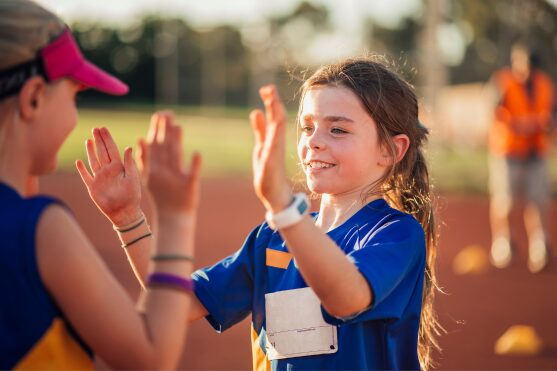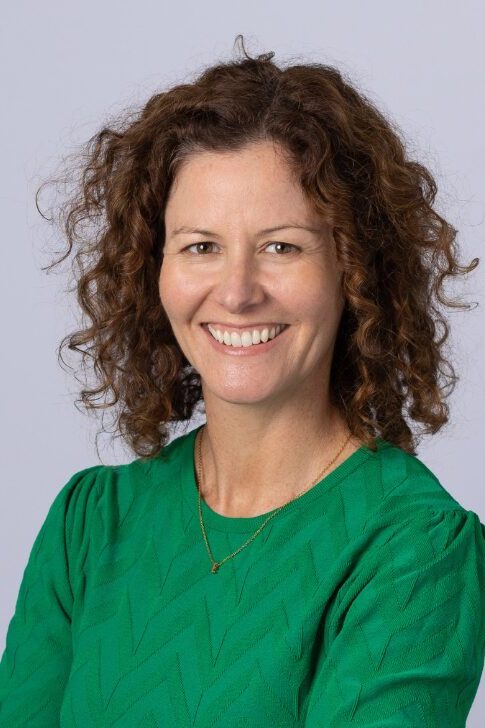Future Generation Australia is seeking NFP partners for first time in 10 years

Future Generation Australia (FGX) is calling for expressions of interest from non-profits that are supporting children facing adversity to thrive. It marks the first time that FGX, which has donated $43m to Australian charities working with children at risk, has opened its books to new non-profit partners since it was founded by veteran fund manager Geoff Wilson in 2014.
After a review of FGX’s giving focus and strategy, a refined mission has been identified around supporting NFPs working in the emergent field of positive childhood experiences.
FGX is one of two listed investment companies in the Future Generation stable. The other, Future Generation Global, has invested $44.2m in Australian charities working in youth mental health, making the organisation’s total giving $87.2m.

Emily Fuller, Future Generation’s Social Impact Director, said: “The lifelong impacts of childhood trauma are well-documented through decades of research, but this doesn’t have to be the case. We plan to lean into the more emergent field of positive childhood experiences – achieved through healthy relationships and connection – which have been shown to help children overcome and heal from trauma.
“Kids need positive, nurturing interactions with trusted caregivers to support their development. These positive interactions are the bricks that build sturdy brain architecture, leading to improved learning and behaviour as well as better physical and mental health throughout life.
“We will focus on children aged 0 to 14, and their parents, because this age bracket captures key development phases. Within that, we are looking particularly for partners that work with children aged 8-14 because they have traditionally received less attention and funding than the 0 to 3 or youth/adolescent stages. We believe that this is the area where Future Generation Australia can make the most meaningful and useful contribution.”
Emily said the focus of FGX is “very complementary” to the work being done by the Investment Dialogue in Australia’s Children.
In 2023, the landmark Australian Child Maltreatment Study (ACMS) – which surveyed 8,500 Australians 16 and older – evidenced the high prevalence of childhood maltreatment.
The study found that more than a quarter of young people aged 16-24 years had experienced between three and five types of abuse in childhood. This adds to data from the Australian Institute of Family Studies that estimated more than 50% of children had been exposed to two or more adverse childhood experience by the age of 11.
Emily said: “We are looking to build on what we’ve achieved with our funding partners but also hopefully break new ground.
“The negative effects of adverse childhood experiences are well documented, but through more recent research around epigenetics and brain malleability, we now understand that positive experiences can lessen those impacts.
“So it’s a promising area that hasn’t received a lot of attention so far.”
Future Generation is looking to partner with up to 15 non-profits, which will be provided with untied, multiyear funding and additional capital for capacity-building. Online submissions for the EOI opened this week and will close in a month. When Future Generation Global ran a similar process in 2022 it received 175 applications, so Emily is expecting a significant number to apply again. Those will be narrowed down to around 45 by Emily and two external professional grantmakers.
At that point, a youth advisory group will be involved in assessing the applications to create a shortlist of around 25. Emily will then go out and meet those NFPs and see their work in practice. Then Future Generation CEO Caroline Gurney will join the selection process and make the final decisions with the board.
FGX is seeking to build a portfolio of small-to-medium-sized non-profits, with a proven track record, but still enough “runway” to deepen their impact. They will include a mix of regional and national scope, and community-based organisations, including Aboriginal Community Controlled Organisations. FGX will build a framework that will allow it to track the individual partners’ progress and their collective impact.
Emily said: “We are looking for organisations that are really hungry to drive impact and have an urgency for changing the status quo.
“They will also need to be willing to contribute data and be part of a portfolio of organisations that exchange and work together for greater collective impact.
“Then there’s always the magic ingredient, which you can’t describe, but know when you see it.”
Backed by more than 7,000 everyday “mum and dad” shareholders, FGX has so far donated $43 million to Australian non-profits including Raise Foundation, the Australian Children’s Music Foundation and Giant Steps, while providing investors with average annual returns of 9.6%. Last year the fund gave around $10m to charities.
Dr Philip Lowe, Chair of FGX, says: “Severe childhood trauma has lifelong and profound impacts. Australians who experience childhood maltreatment and abuse are far more likely to face physical and mental health problems, social, behavioural and educational issues, and to have high health service utilisation. Not only is this devastating for the individuals involved, but it is costing the Australian economy tens of billions of dollars each year.
“Childhood is the foundation for life and really affects a person’s future trajectory. At Future Generation, we believe that every Australian child deserves the opportunity that a safe and positive childhood offers – and I know our shareholders do too.”
Caroline Gurney said: “By measuring our partners’ collective impact, we will be able to tell a compelling narrative that will demonstrate to others, particularly governments, the value of investing in the thousands of Australian children facing adversity.”
For funding guidelines and submission information, visit FGX’s expression of Interest page.